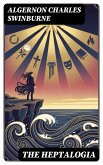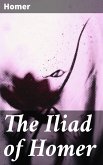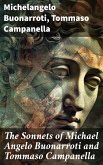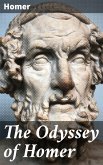Algernon Charles Swinburne's "The Heptalogia" is a compelling exploration of complex themes such as love, death, and the cyclical nature of existence, structured in seven distinct but interrelated poems. The text employs a rich, sensuous style, often characterized by its musicality and innovative use of meter, reflecting the Pre-Raphaelite passion for vivid imagery and emotional intensity. Swinburne expertly weaves classical influences with modernist tendencies, resulting in a work that resonates with the tensions of the Victorian era while simultaneously challenging literary conventions of its time. Swinburne, a prominent figure in the Victorian literary scene, was profoundly influenced by both his liberal upbringing and the works of poets such as Byronic and the early romantics. His fascination with taboo subjects and his bold defiance of societal norms informed the passionate and often controversial themes in "The Heptalogia." This collection not only showcases Swinburne's aesthetic vision but also reflects his philosophical musings on the nature of human experience, making it a landmark in 19th-century poetry. For readers seeking a rich, multi-layered literary experience that transcends mere aesthetics, "The Heptalogia" stands as an essential work. Its lyrical beauty and profound insights invite contemplation and emotional engagement, marking it as a significant contribution to the canon of English poetry. Swinburne's masterful control of language ensures that this collection remains both timeless and timely for contemporary readers.
Dieser Download kann aus rechtlichen Gründen nur mit Rechnungsadresse in A, B, BG, CY, CZ, D, DK, EW, E, FIN, F, GR, H, IRL, I, LT, L, LR, M, NL, PL, P, R, S, SLO, SK ausgeliefert werden.









